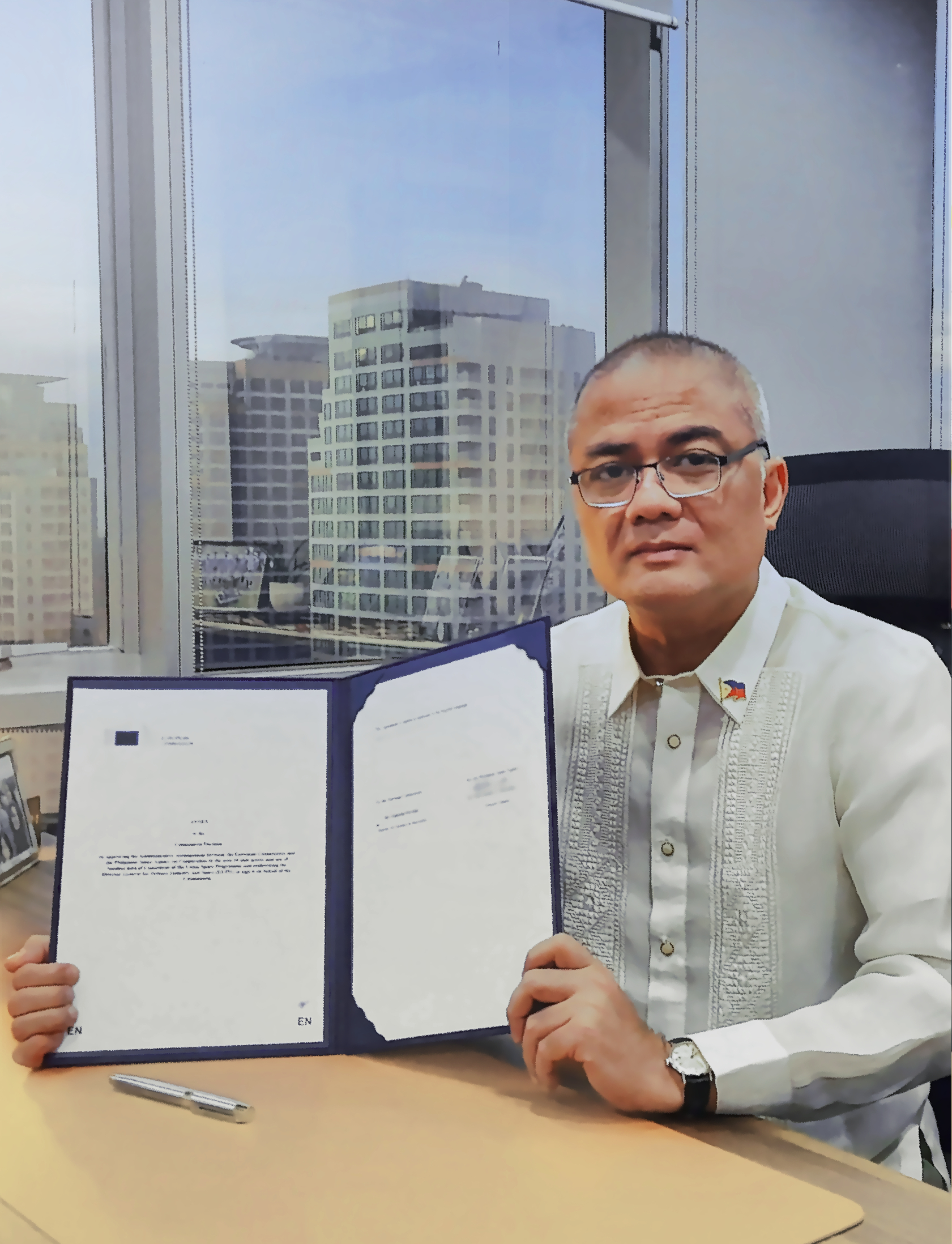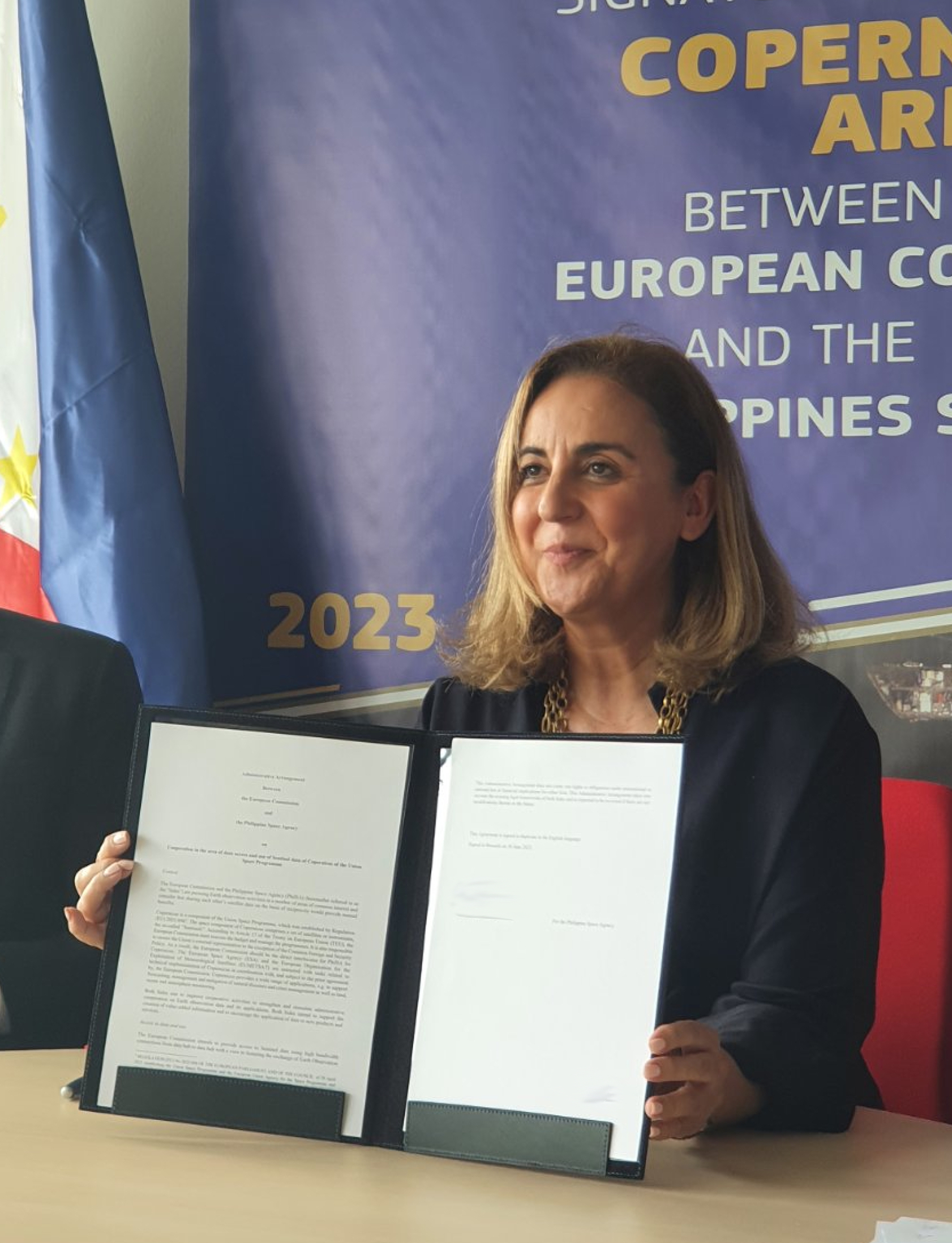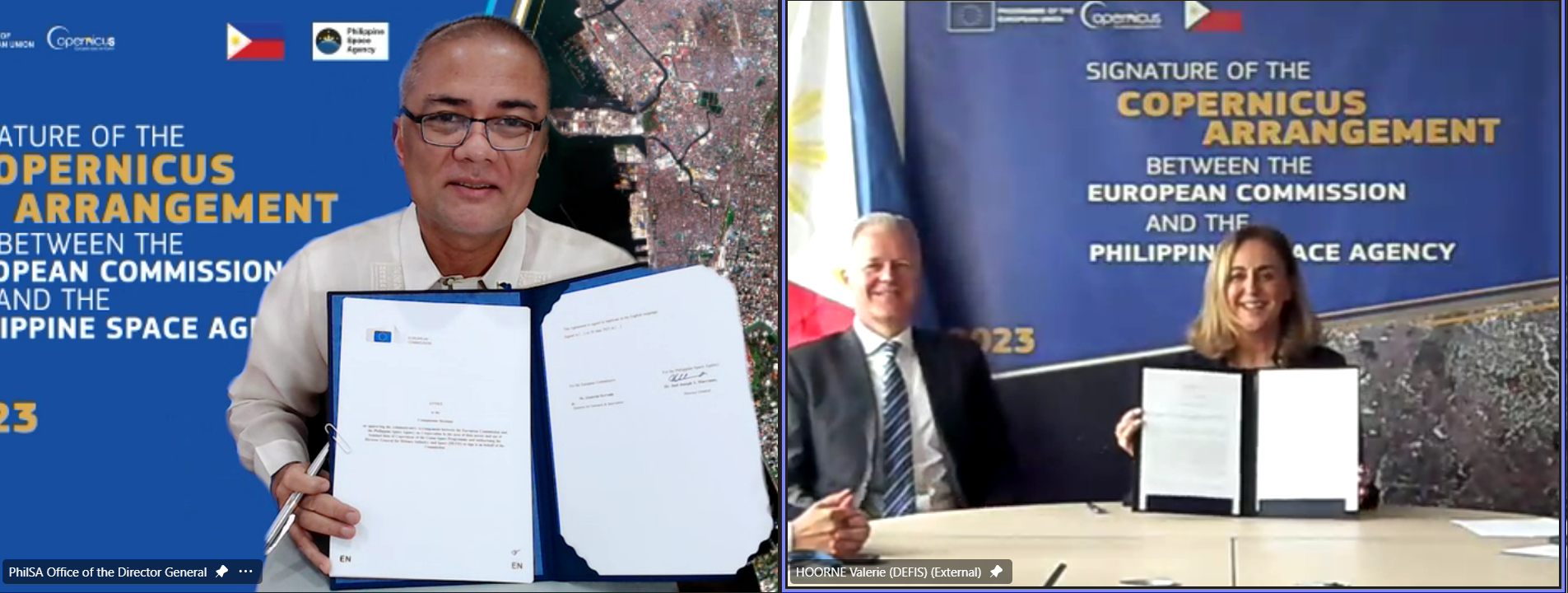The European Commission and the Philippine Space Agency (PhilSA) signed an administrative arrangement on 30 June 2023 to strengthen and stimulate cooperation in Earth observation. The arrangement will facilitate the reciprocal exchange of satellite data and will encourage its use and application in addressing societal challenges of common interest, ranging from the long-term management of natural resources, monitoring of marine and coastal areas, water resource management, mitigating the impacts on climate, disaster risk reduction, food security, rural development, and public health.
Under this arrangement, PhilSA intends to set up a data hub to distribute Copernicus Sentinel data and information across the region, as well as to support pilot projects using Copernicus. The arrangement will serve as a basis for the implementation of a Copernicus capacity-building program for the Philippines, funded by the European Commission’s Directorate-General for International Partnerships (DG INTPA).

PhilSA Director General Dr. Joel Joseph S. Marciano, Jr. with the signed Copernicus Cooperation Agreement with the European Commission (EC)
“The agreement that we signed with the European Commission on data access supports the creation of value-added information and the development of new data products and downstream services from Copernicus Earth observation satellites. The agreement also facilitates the establishment of the Copernicus Mirror Site in the country under the Copernicus Capacity Support Action Programme for the Philippines (CopPhil), targeting data on a national and regional scale,” said PhilSA Director General Marciano. “The Copernicus cooperation is a landmark in PhilSA’s and the Philippines’ youthful space endeavor, and a watershed in long-standing Philippines and EU relations. We thank the EC and European Union in the Philippines and acknowledge our CopPhil partners, the Department of Science and Technology and the European Space Agency,” he added.

Ms. Ekaterini Kavvada, Director for Outreach & Innovation, Directorate-General for Defence Industry and Space (DG-DEFIS) during the Copernicus Cooperation Agreement between PhilSA and the European Commission.
This cooperation arrangement is part of the Copernicus global outreach strategy which aims to promote the take-up of Copernicus data and its services in tackling societal challenges worldwide through cooperation arrangements with partner countries. So far, the European Commission has signed similar arrangements with administrations in the United States, Canada, Japan, Australia, Chile, Colombia, Brazil, Panama, India, the African Union, Serbia, and Ukraine.
For more information, read here.
Background
Copernicus is a European Union Programme aimed at developing European information services based on satellite Earth Observation and in-situ (non-space) data. The Programme is coordinated and is managed by the European Commission. It is implemented in partnership with the European Union Member States, the European Space Agency (ESA), the European Organisation for the Exploitation of Meteorological Satellites (EUMETSAT), the European Centre for Medium-Range Weather Forecasts (ECMWF), EU Agencies, and Mercator Océan. The Copernicus Services deliver near-real-time data on a global level which can also be used for local and regional needs, to help us better understand our planet and sustainably manage the environment we live in. Copernicus data supports countries worldwide in their efforts to comply with the targets set in the Paris Agreement’s Nationally Determined Contributions. For more information, visit https://www.copernicus.eu/en.
The Philippine Space Agency (PhilSA), the Department of Science and Technology (DOST), and the European Union (EU) launched the Copernicus Capacity Support Action Programme for the Philippines on 24 April 2023. The first space cooperation program in the region, this new initiative will help Philippine authorities develop national systems to make use of EU’s Earth observation satellites data in the country’s disaster mitigation and climate change adaptation and food security strategies.




